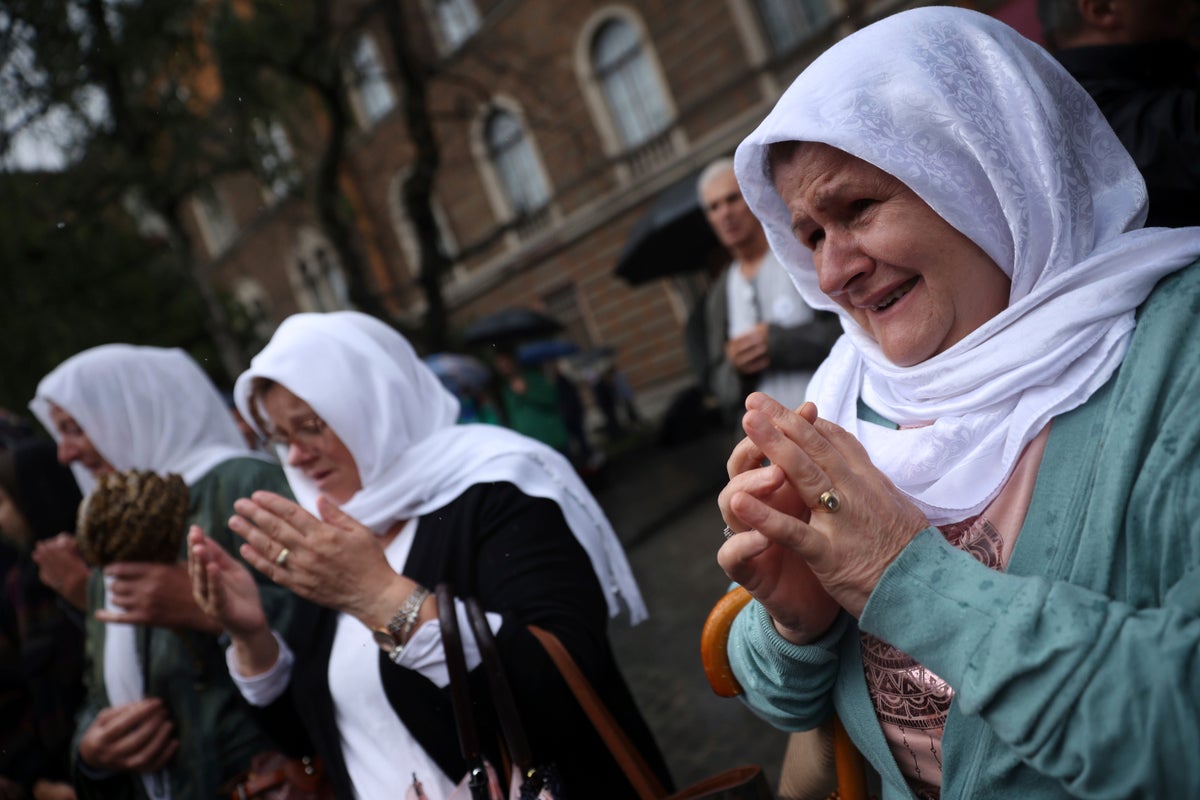
Thousands of people joined a peace march on Friday through forests in eastern Bosnia in memory of the 1995 Srebrenica massacre, Europe’s only acknowledged genocide since World War II.
The 100-kilometre (60-mile) march traces a route taken by men and boys from the Bosniak ethnic group, which is made up primarily of Muslims, as they tried to flee Srebrenica after it was captured by Bosnian Serb forces in the closing days of the country’s interethnic war in the 1990s.
“I came here with my two sons and 50 other people from my hometown to pay respect to the victims, to remember their plight,” said Ademir Mesic from the northwestern Bosnian town of Bosanska Krupa.
“At some moments, in some places we passed by, I felt my skin creep,” said Mirce Malic from the northeastern town of Tuzla. “It is hard to think about what the (massacre) victims have gone through, walking through here and not knowing what awaits them around the corner."
In July 1995, at least 8,000 Bosniak males were separated by Serb troops from their wives, mothers and sisters, chased through woods around Srebrenica and killed by those forces.
Bosnian Serb soldiers dumped the victims’ bodies in numerous mass graves scattered around the eastern town in an attempt to hide the evidence of the crime.
Newly identified victims are reburied each year on July 11 — the anniversary of the day the killing began in 1995 — in the vast and still expanding memorial cemetery outside Srebrenica.
So far, the remains of more than 6,600 people have been found and buried at the cemetery. The remains of 50 more victims, recently found in mass graves and identified through DNA analysis, will be put to rest there on Monday. On Thursday, people lined Sarajevo’s main street as a huge truck bearing their coffins passed by on its way to Srebrenica.
The truck stopped in front of Bosnia’s presidency where the people paying respect tucked flowers into its canvas. Among them was Fatima Aljic, whose son, husband and brother were killed in the massacre. Aljic is still searching for their remains.
“Every year I come to bid farewell to the victims and it is difficult — it is very hard,” Aljic said before tearing up. “It would be hard even to witness what happened to us happening to someone else, let alone to experience it yourself."
The Srebrenica killings were the bloody crescendo of the war in Bosnia, which came after the breakup of Yugoslavia unleashed nationalistic passions and territorial ambitions that set Bosnian Serbs against the country’s two other main ethnic factions — Croats and Bosniaks.
The massacre has been declared a genocide by international and national courts, but Serb leaders in Bosnia and neighbouring Serbia continue to downplay or even deny it despite the irrefutable evidence of what happened.







